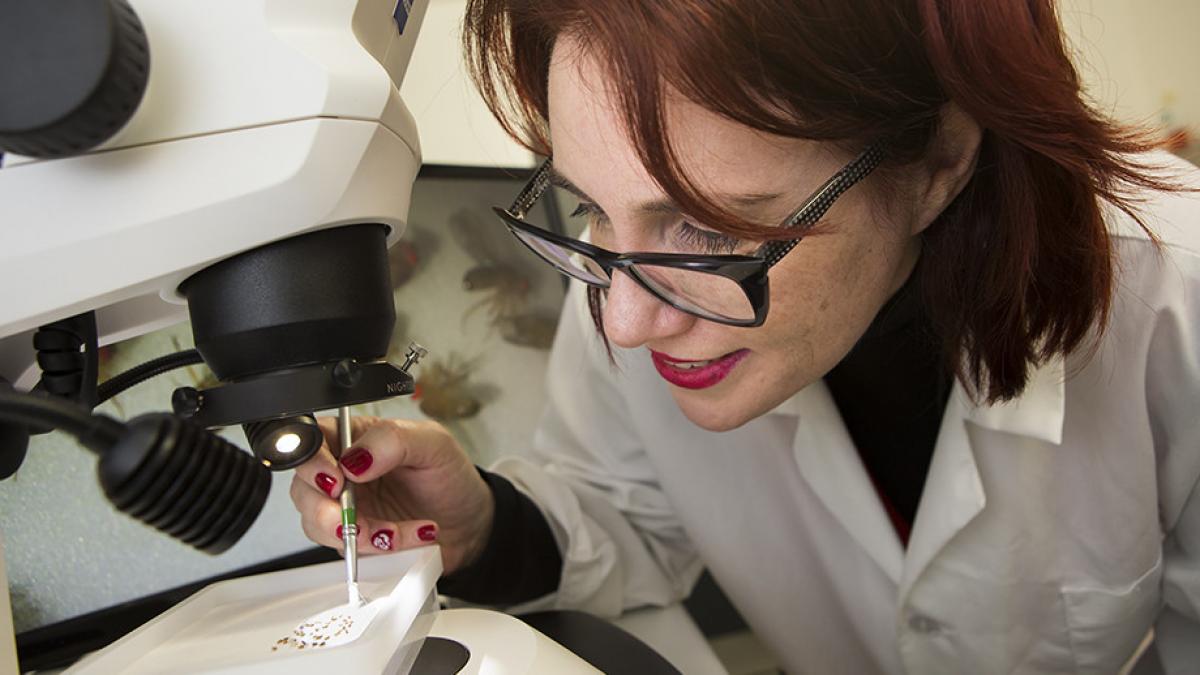JCSMR projects win ACT Research and Innovation Fund

Two projects led by JCSMR researchers have been recommended for the 2020-21 Research and Innovation Fund (RIF) by Rachel Stephen-Smith, the ACT Minister for Health.
Initiated by the ACT Health Directorate, the RIF is a $3 million fund set up to deliver health research within the ACT, providing up to A$300,000 per project for work which supports the delivery of cutting-edge health care backed by clinical research.
Connecting patients with drug discovery
“We are very excited!” said Professor Leonie Quinn, who leads the funded project “Establishing the Canberra Brain Cancer Clinical-Research Collaborative”.
While survival for many cancers has increased significantly in the past two decades, outcomes for brain cancer patients has remained poor.
To increase survival and improve the quality of life of brain cancer patients, Professor Quinn seeks to build reliable pipelines for developing new therapeutics.
One pillar of this effort will be establishing a repository of tumour material aligned with best practices in Australia for patients treated at The Canberra Hospital.
Sophisticated genomics data derived from the bio-banked materials will “guide our laboratory-based precision drug discovery approaches,” said Professor Quinn.

Professor Quinn (middle) and her lab members. Image: Professor Leonie Quinn
Conventional pipelines for discovering drugs against brain cancer often rely on models that do not adequately reflect the native tumour microenvironment.
A research unit co-led by Professor Quinn and Professor Ross Hannan employs 3D bio-printed brain organoid (“mini brain”) models to address this deficiency.
Recapitulating the complex environment where tumours live more accurately, these innovative models can help achieve more effective drug screening.
Together, this clinical-research collaborative will build bridges between patients and fundamental research, drug discovery and clinical trials, bolstering a move towards personalised brain cancer treatments.
“Support from ACTH RIF fund will ensure patients in Canberra are provided, for the first time, with the opportunity of cutting-edge genomics-based analysis of their brain cancer and, thus, access to current clinical trials and emerging treatments,” said Professor Quinn.
Combining radiotherapy and immunotherapy
The other recommended project, led by the Irradiation Immunity Interaction Laboratory (I-Cube Lab), also has a strong translational focus on cancer treatment.
“Our group has established pre-clinical workflows for studying in-vivo changes in the immune system in various tumour models,” said Dr Ben Quah, co-leader of the I-Cube Lab.
“We aim to exploit these changes to improve treatment outcomes harnessing the potential of immunotherapies in combination with local treatments,” he said.
Specifically, the platform allows Dr Quah and his collaborators to identify predictive immune biomarkers in the setting of colorectal cancer. The biomarkers can later inform the development of personalised radio-immunotherapy against cancer.
“This fund will be vital not only to expand our pre-clinical work but will also assist in its translation into the clinical setting,” said Dr Quah.
Collaborating to succeed
Both projects are born out of cross-discipline collaboration to see their goals accomplished.
Dr Quah’s project— “A multiparameter platform for novel radio-immunotherapy personalisation in metastatic colorectal cancer”—hinges on close collaboration between the I-Cube Lab and the Radiation Oncology Department, Canberra Health Services.

The work led by I-Cube Lab also includes associations with the Clinical Director of Medical Oncology Department, CHS (Prof. Desmond Yip), the Clinical Director of Radiation Oncology at The Alfred, Melbourne (Assoc. Prof. Hany Elsaleh), The Epithelial Group Leader, JCSMR (Prof. Barry Thompson), and the biomedical research company Lipotek (led by Dr. Ines Atmosukarto).
Meanwhile, Professor Quinn’s group teams up with the ACT Health Neurosurgery Team, the Neuro-oncology Unit, the Neuropathology Team, as well as multiple ACT Community Leaders.
“The grant is a collaboration between consumer advocates, oncologists, surgeons, radiation oncologists, pathologists, and researchers,” said Professor Quinn.
